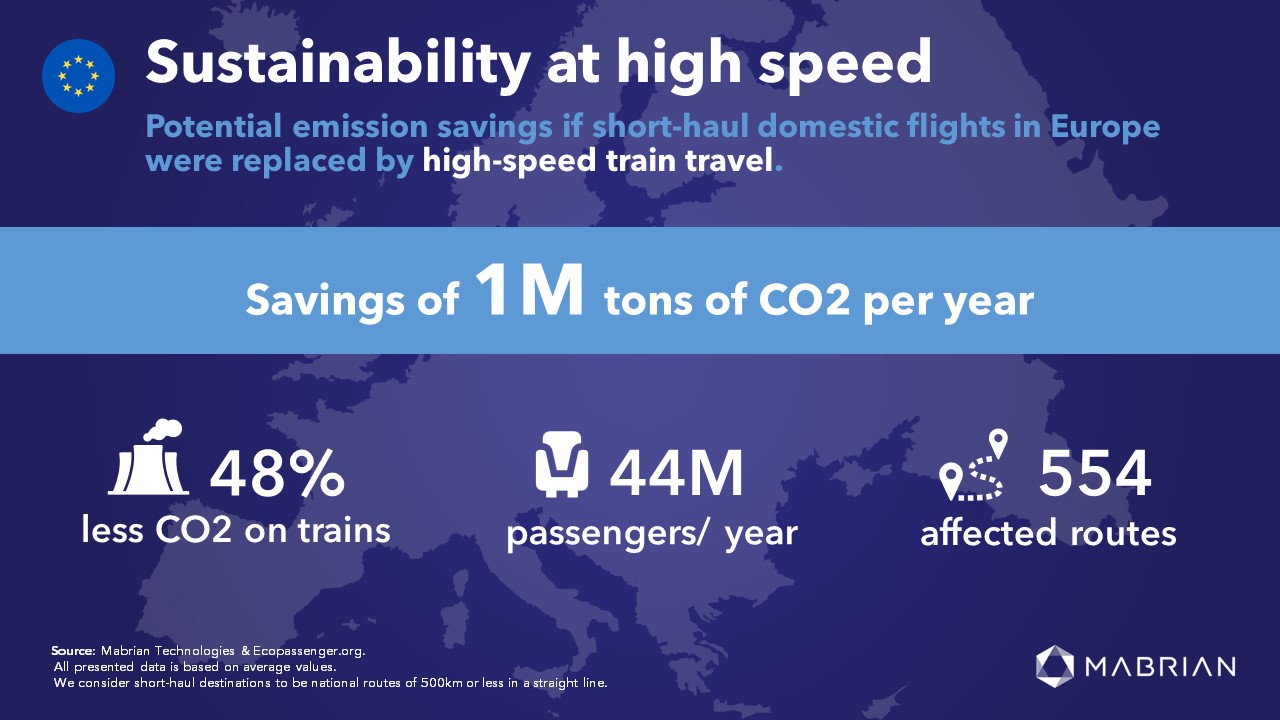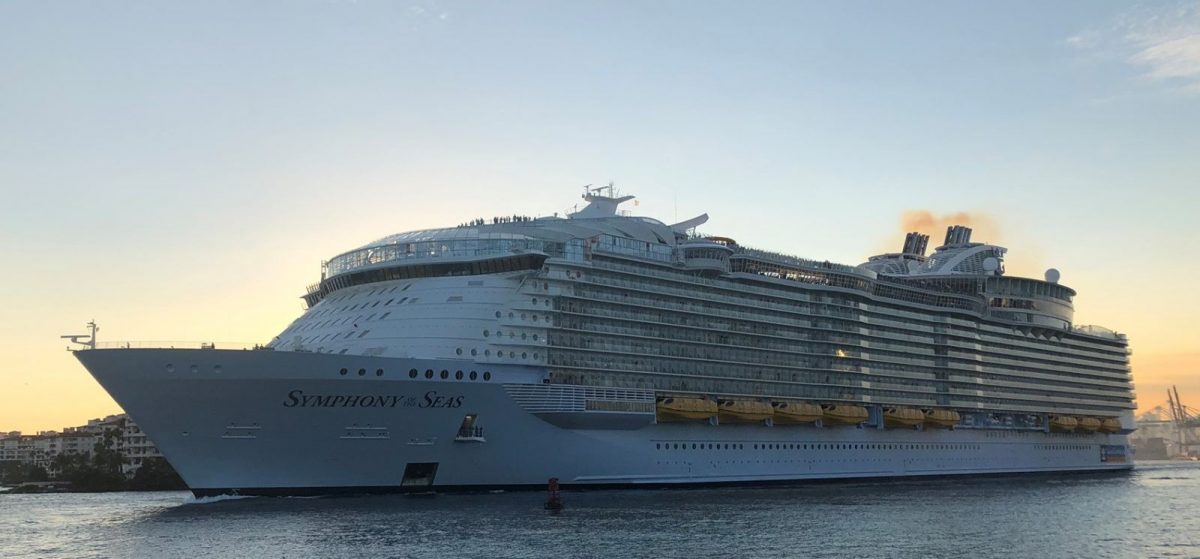Europe could reduce CO2 by 1 million tonnes switching domestic flights to rail

Travel Intelligence firm Mabrian Technologies has crunched the numbers in the big plane vs train debate.
It carried out a study on the potential impact of replacing domestic flights of less than two and a half hours up to a maximum of 500 km, with high-speed trains.
The study analyses the savings in CO2 emissions if it became a requirement across Europe.
This has already started to be implemented in France.
The report found there are 554 domestic flight routes in Europe which would qualify.
In 2023, they will carry around 44 million passengers and produce around 2.3 million tonnes of CO2.
If they shifted to high-speed trains it could reduce the environmental impact by an average of 48%.
This would translate into a saving of more than one million tonnes of CO2 in just one year.
This is equivalent to more than 200,000 cars running continuously for 12 months, Mabrian says.
For a comparative calculation, Mabrian has looked at the type of electrical energy and its sources, which power the railway system in each European country.
It followed the methodology published by the EcoPassenger report.
This sets out an ambitious transition towards sustainable mobility, involving the adoption of clean and green technologies.
Some countries are further advanced in this than others.
Germany, for example, has invested in modernising its rail infrastructure and adopting cleaner technologies.
Sweden has been a leader in the use of renewable energy sources such as hydropower and wind power in rail transport.
The study reveals five European countries that would achieve the greatest CO2 savings if this transition were to take place.
Top is Spain, with a potential saving of 360,000 tonnes of CO2 per year.
Then it is Germany, France Italy and Sweden.
The analysis has focused only on domestic air routes within each country.
So, potential savings would be much greater if all air routes of 500km or less were also considered.
Still, to meet the requirements, the cost of upgrading rail infrastructures would require significant investment.
Some countries may not have the resources to finance it.
Carlos Cendra, Marketing Director at Mabrian, said: “While this analysis may seem unrealistic, we believe in demonstrating the efficiency of decisions through data.”
With this analysis, we have quantified the potential savings from taking steps in that direction.”
Learn more about : Mabrian Technologies ( United Kingdom )
TravelMole Editorial Team
Editor for TravelMole North America and Asia pacific regions. Ray is a highly experienced (15+ years) skilled journalist and editor predominantly in travel, hospitality and lifestyle working with a huge number of major market-leading brands. He has also cover in-depth news, interviews and features in general business, finance, tech and geopolitical issues for a select few major news outlets and publishers.
david bruceAug 02, 2023 03:25 PM
With the main infra structure already in place, how much more could be achieved using the Channel Tunnel and Eurostar? Extra terminal capacity and night trains would be really good. Of course UK and EU would have to co-plan but is it not a climate emergency?
Log in to Reply United Kingdom
United Kingdom United States
United States Asia Pacific
Asia Pacific












































CLIA expands trade support with expedition event
Qatar Airways adding Manchester flights
Jet2 unveils Samos as new Greek destination for summer 2026
EU entry-exit system delayed again
ATC strike in Greece could disrupt flights this week